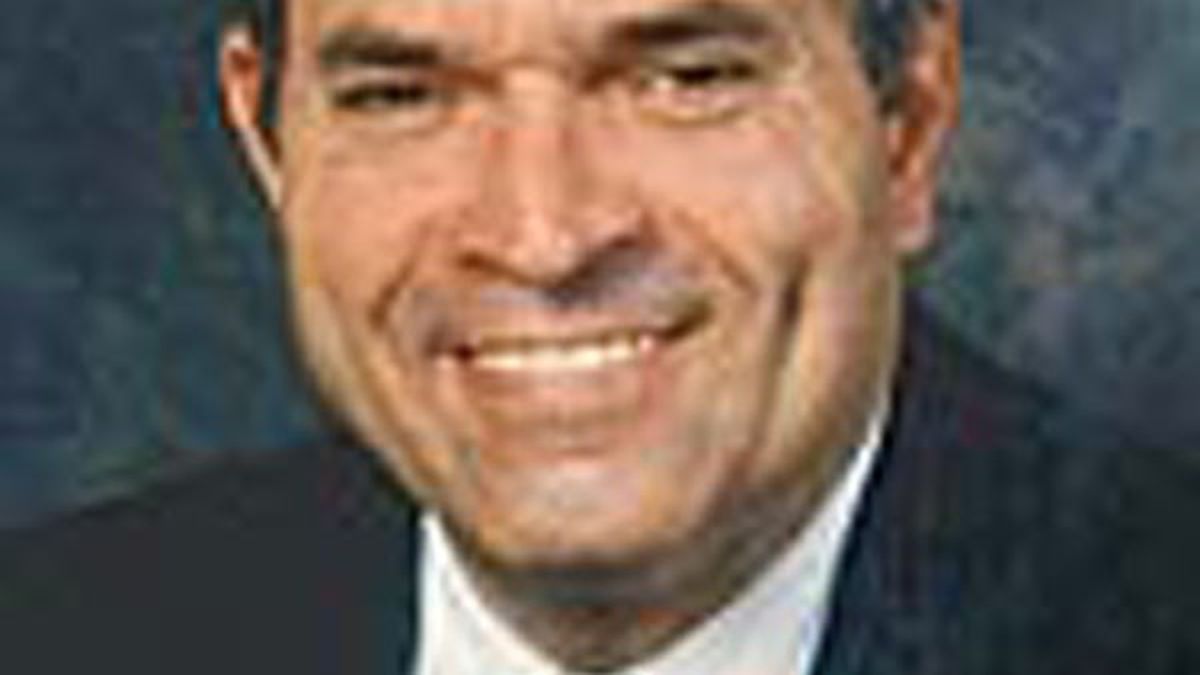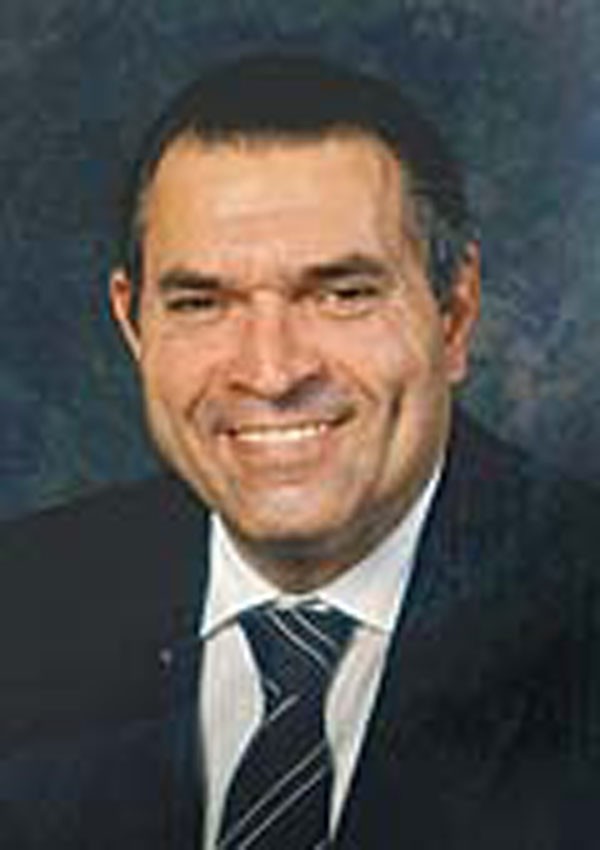Emeryville is the Little City That Could. Over the years, it has built a retail and high-tech business juggernaut along Interstate 80 and has become the envy of cities throughout the East Bay. Emeryville’s tax revenues from all that retail also have kept the city afloat, while other cities have floundered, and will help it weather the current recession. But there is one Emeryville leader who is not doing all he can to contribute to the city’s financial well-being — Mayor Ken Bukowski.
Bukowski, who has served on the Emeryville City Council for 21 years, has not paid his city business license taxes for the past four years, according to City Manager Patrick O’Keeffe. The 56-year-old Bukowski said in an interview last week that he hasn’t paid the tax because he’s broke, although he acknowledged that he has publically opposed the tax and thinks it’s unfair. Public records also indicate that although Bukowski has fallen behind on his property taxes and is by no means a wealthy man, he has managed to pay some of his other bills over the years — just not to the city he serves and leads.
Bukowski’s beef with the city business license tax began in 2004. In September of that year, city officials decided to start enforcing the tax on residential property landlords without informing all of the city council. The tax itself had been approved by the council in 1986, but the city had only enforced it on commercial property owners for its first eighteen years. Bukowski, who owns and rents out a modest six-unit building next to his small home on Doyle Street, immediately protested the decision. “It may be legal, but it’s not right,” he said at a council meeting, according to a report at the time in the Oakland Tribune. “I disagreed with how the tax was implemented,” he told Full Disclosure last week.
Still, the mayor maintained that his failure to pay the tax is not some sort of protest. “I’ll pay it as soon as possible,” he said. Bukowski’s income consists of the rent he collects from his tenants and the $800 stipend he receives from the city for serving on the council, although he said he recently got a new job as a telecommunications consultant.
According to O’Keeffe, Bukowski hasn’t paid the city business license tax since Emeryville officials began enforcing it in 2004. The tax is only $25 a year, and as of last week, Bukowski owed $100 plus interest, O’Keeffe said. Public records also show that the mayor didn’t pay his property taxes on his home last year. According to the Alameda County Assessor’s Office, he owes $1,719 in back property taxes, including late fees. The mayor’s tax problems were first reported last month on The Secret News, a blog that covers Emeryville.
Yet despite his unpaid debts, Bukowski’s claim that he hasn’t paid the city’s business license tax because of monetary problems — and not because he opposes the tax itself — is suspicious. After all, the tax is minimal, and public records show that his financial problems haven’t stopped him from paying his other taxes, including his property taxes on his rental property. A public records search found no liens against him for failure to pay state or local income taxes or any other bills. In addition, records show that while he wasn’t paying the $25 he owed the city each year, he somehow had enough money to pay about $3,000 annually to the county for his property taxes on his rental property — on time, without incurring penalties.
At least one of Bukowski’s colleagues on the city council is concerned about the message the mayor is sending by not paying his city taxes. “That troubles me a lot — the fact that he apparently has not paid because he doesn’t agree with it,” said Councilman John Fricke. “I believe it encourages others to not pay the tax.” According to public records, the city placed liens on thousands of pieces of rental property throughout Emeryville, including Bukowski’s, for not paying their business license taxes. That’s a lot of tax scofflaws for a city with only 6,815 residents, according to the 2006 Census estimate.
But Bukowski’s taxes are only part of his problems. Prior to last year, he was best known as the East Bay’s leading advocate for adding a rail line to the new Bay Bridge. After he lost the battle in the late 1990s, he receded into obscurity until late 2007 when he suddenly shot back into the headlines after striking and killing a pedestrian while driving his SUV. On the evening of December 6, Bukowski killed Michael Smela, 56, of Oakley, on an Emeryville street during a light rain.
Bukowski had just left a community meeting that night at Novartis Vaccines and Diagnostics. The mayor was driving on Hollis Street (not far from this newspaper’s office) when his SUV slammed into Smela, a security guard at Novartis and a former San Francisco police officer. Smela, who was wearing a brightly colored jacket, appears to have been crossing the street outside of the crosswalk. Bukowski told police that he didn’t see Smela and that he was driving below the speed limit. Bukowski was not arrested, and according to published reports, police did not test the mayor for drugs or alcohol.
In May of this year, Smela’s widow, Lynda Lopez-Smela, filed a wrongful death lawsuit against Bukowski and the city. The city is paying Bukowski’s legal bills, and according to court documents, lawyers representing the mayor and the city maintain that Smela was responsible for his own death. “There was no question that this was a tragic accident,” attorney Mark Hazelwood told Full Disclosure. “It’s apparent from the evidence that Mr. Smela was jaywalking in the middle of the block.”
Lynda Lopez-Smela has yet to reveal how much money she’s seeking in damages. The two sides tried to settle the case with the help of mediation, but got nowhere. Lopez-Smela adamantly denies that her husband was to blame. “We are confident,” her attorney Daniel Crawford said in an interview, “that the facts will show that this was caused by the negligence of the mayor.”
Criminal History
What is it with people running for office in Oakland even though they have had serious legal and financial problems? Earlier this year, we told you about former Planning Commissioner Clinton Killian and real estate agent Mario Juarez who both ran for Oakland City Council in the June primary despite having bankruptcies and enduring legal troubles (see “The Chamber’s Candidate Has Quite a History in Business,” April 23, and “Candidate for Council Has a Troubled Past,” May 21). Well, it happened again in the November Election. Ex-felon Marlon McWilson ran for the Peralta Community College Board of Trustees. Not surprisingly, he lost, just like Killian and Juarez.
Typically, Full Disclosure tries to expose the details of a political candidate who was once convicted of a felony before Election Day. But in this case, it proved to be impossible because the Alameda County Superior Court Clerk’s Office misplaced McWilson’s file. It turned up after the election, and after McWilson was trounced by incumbent Marcie Hodge 61 percent to 38 percent.
In the spirit of “better late than never,” here are the details from McWilson’s criminal case file. Oakland police arrested McWilson in 1997 after getting a call from a teller at a Great Western Bank on Broadway in North Oakland. McWilson was 22 at the time and he was attempting to withdraw $4,700 from his bank account. The day before he had deposited ten $500 money orders in an ATM machine. The only problem was that the money orders were stolen.
According to police, McWilson had made the money orders out to himself and signed them himself, so he was arrested at the bank, and later charged with ten felony counts of possessing stolen checks with the intent to defraud. Two years later, he reached a plea bargain with the Alameda County District Attorney’s Office and agreed to plead no contest to one of the felony charges in exchange for three years’ probation. In the eyes of the law, pleading no contest is the same as pleading guilty. McWilson subsequently got the charge reduced to a misdemeanor, which is not unusual for a defendant with no prior criminal history.
McWilson said last week that he was not to blame for the incident, and that he was a victim himself. He said that a man who bought his car paid him with the money orders and he didn’t know they were stolen. But when Full Disclosure asked him why the man who bought his car didn’t sign the money orders over to him, McWilson couldn’t explain it. In addition, there is no reference in the court file of McWilson ever telling authorities about this stolen-money-order-for-car story. In fact, police investigators submitted a sworn statement, saying that McWilson refused to talk to them.
So why would McWilson run for public office with a felony-conviction record? He said he wasn’t worried that it would sink his chances and that people who endorsed him understood that he had made “some not-so-smart decisions” in his youth. Among his endorsers was the Alameda County Democratic Party, the same organization that endorsed Juarez. Which raises another question, why does the local Democratic Party keep endorsing people for public office, to handle the public’s purse strings, when they either have criminal records involving theft and fraud or can’t manage their own finances?
Crime Doesn’t Pay
Staying with our politicos in trouble theme: James Muhammad, who ran unsuccessfully for the AC Transit board of directors earlier this month, is still being prosecuted by the Alameda County District Attorney’s Office. Prosecutor Jeff Stark said Muhammad was charged before the election with felony election fraud for registering to vote in Emeryville and running for office from that city when he actually lives in Richmond. In fact, the address Muhammad used on his voter registration is actually his girlfriend’s home in Oakland, Stark said. But the girlfriend told authorities that she wouldn’t let Muhammad live there unless they got married, the prosecutor said. If Muhammad can’t strike a plea deal by next month, he’ll face a trial. Muhammad tried to defeat incumbent Greg Harper for his Ward Two seat, Berkeley, Emeryville, and part of Oakland, but was pummeled 74 percent to 25 percent.

















